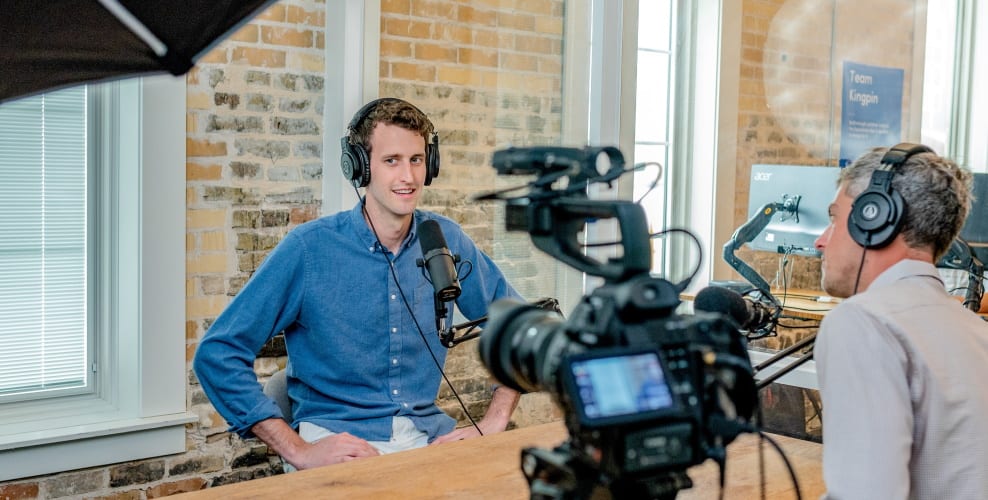‘Event planning’ in South Africa right now should perhaps be rebranded as ‘event proposing’, seeing as we are unclear on when we will be able to hold events again, and what restrictions will guide them. Level 1 of lockdown still prohibits conferences and other types of gatherings. By some projections, it will only end in February 2021. This is presumably based on a linear projectory without any serious spikes in outbreaks – while we must also consider that things could go well and it could end much sooner.
This puts many event organisers in a difficult situation. Do you move your events online so they can go ahead exactly as planned? Or do you take an (informed) gamble and set a date for a face-to-face event?

According to Mike Piddock, the CEO of Glisser, the best solution is to do both: to organize a hybrid event. He has many reasons for taking this stance, which he outlined in his webinar on 18 May 2020, titled ‘Why you should not be planning a virtual event right now’.
Hybrid events are the best way to mitigate your risks… Hybrid events give you flexibility to adjust your numbers between the two event formats, and respond fluidly to any new restrictions or COVID-19 developments.
The key point he made was that hybrid events are the best way to mitigate your risks. A hybrid event allows you to plan both an in-person and online experience. Should you need to cancel the physical event, you haven’t lost your entire event. And should the demand grow for your face-to-face event and the rules allow you to increase the numbers, you can also do this. Hybrid events give you flexibility to adjust your numbers between the two event formats, and respond fluidly to any new restrictions or COVID-19 developments.
Virtual events have been attracting 3 or 4 times the number of delegate registration as compared to their physical versions. And where dropout rates used to be as high as 50%, they now sit at about 10-20%.
Here are some considerations which support this stance:
- Venues will be operating at a lower capacity (as low as 50%) because of social distancing. This, and the extra health and safety precautions put in place, will impact the cost of the event. The sale of virtual event tickets can offset these costs.
- Following on from that point – yes, virtual events can be monetized. Piddock shared that virtual events are increasing in popularity, and many have been attracting 3 or 4 times the number of delegate registration as compared to their physical versions. He also noted that where dropout rates used to be as high as 50% for this format, they now sit at about 10-20%. Lockdown has influenced this behaviour, but presumably the trend will continue as we emerge from lockdown but are still encouraged to restrict unnecessary movement.
- Travel restrictions or fear of gatherings – especially for those most vulnerable to COVID-19 – could be barriers to attending a conference or meeting in-person. The virtual event option caters for these attendees. Yet at the same time, others may be desperate to connect with their colleagues in person, and as soon as they are able to. Your physical event answers this need.
- People who have COVID-19 like symptoms and cannot attend your physical event, can access the virtual one instead.
- Piddock predicts that more venues are likely to embrace virtual event components. This will be done to attract events for the same reasons as listed above, and it will help organisers deliver a seamless experience.

Should you decide to create a hybrid event, you shouldn’t use an identical template for both the online and offline versions.
However – Piddock cautions that, should you decide to create a hybrid event, you shouldn’t use an identical template for both the online and offline versions; “It doesn’t work to simply take your agenda and put it online.” There are a lot of distractions a click away with online events, so it is necessary to have a shorter event and punchier sessions. Look for unique ways to add value to both formats and play on their strengths. For example, with the online format you can share short pre-recorded videos, such as an interview with a presenter just before or after his session.




